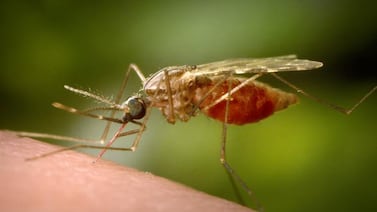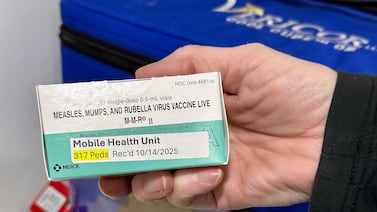Public health, explained: Sign up to receive Healthbeat’s free Atlanta newsletter here.
Officials with Georgia’s Department of Public Health reiterated Tuesday that while respiratory diseases are at seasonal heights, there are signs that this winter’s wave could be milder than recent years.
At the DPH board’s meeting, state epidemiologist Cherie Drenzek shared charts that showed stark winter increases in three major viruses — Covid-19, influenza, and respiratory syncytial virus. The graphs illustrated that so far, flu was the respiratory disease most responsible for driving up state and national hospital visits.
Drenzek said that infectious disease trends can change unpredictably, but that Georgia flu season has likely peaked and is expected to decline soon.
“Even though we have very high activity right now in regard to flu in Georgia, last year was even worse,” she told the board.
While more people with flu have sought hospital care than those with Covid, Drenzek said Covid continues to be more deadly. The DPH has yet to document a flu death this season, but that may be due to lags in reporting.
Covid appears to be on the rise. But cases and hospitalizations remain significantly lower than the previous four winters’ peaks, and deaths are at record lows.
Unlike the trend nationally, Georgia’s RSV cases have declined after reaching the state’s highest levels in recent history.
In a late December survey, the Centers for Disease Control and Prevention estimated that among Georgia adults this respiratory disease season, only 14% had received Covid vaccines, and 35% had been given a flu shot. Unlike previous years, the CDC recommends two Covid booster shots for adults 65 and older.
Drenzek said it’s not too late to seek immunizations for either disease.
“Even though we may be peaking or close to the peak, we often have declines and then spring waves,” she said.
Allen Siegler is a reporter covering public health in Atlanta for Healthbeat. Contact Allen at asiegler@healthbeat.org.







